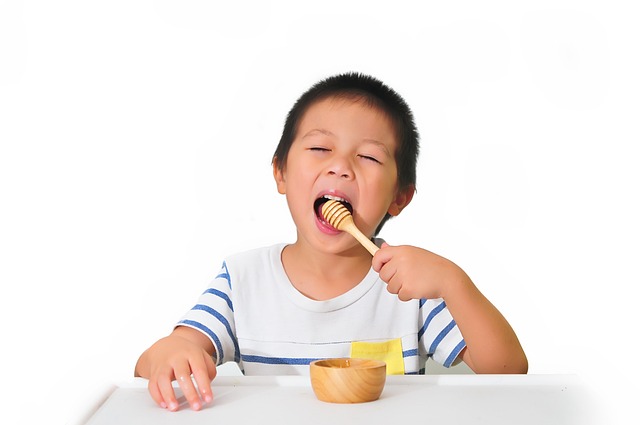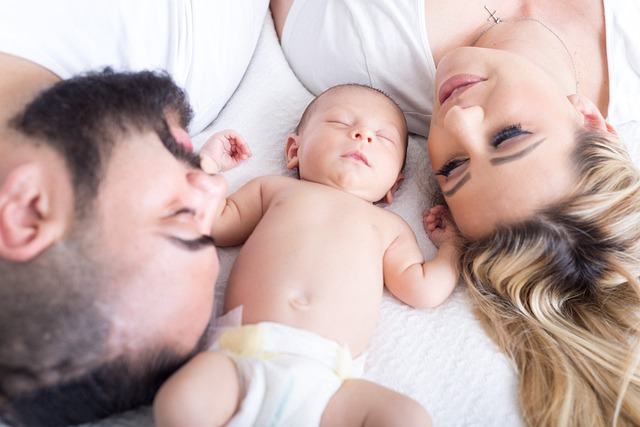Can we give honey to new born baby ?
The answer is No. It is not advisable to give honey to new born babies. It can make them really sick. Honey might have tiny things called spores that can cause a infant botulism. This makes their tummies feel bad and can even make it hard for them to eat and breathe.
To ensure the safety of newborns, it is advised to wait until they are at least one year old before introducing honey into their diet. It’s essential to follow the guidance of healthcare professionals and pediatricians regarding the introduction of foods to infants, taking into consideration their developmental stage and potential health risks.
Honey can potentially contain spores of Clostridium botulinum, a bacterium that can produce toxins responsible for causing infant botulism, a serious and potentially life-threatening condition.
What is Infant Botulism: How it related to honey ?
Constipation:
Babies with infant botulism often experience difficulty with bowel movements, leading to constipation.
Weakness:
Infants affected by botulism may exhibit overall weakness and lack of muscle tone. This can make them appear floppy and have trouble controlling their movements.
Feeding Difficulties:
Botulism can affect the muscles involved in swallowing, leading to difficulties in feeding. Babies may have trouble sucking or swallowing properly.
Weak Cry:
The cry of an infant with botulism may sound weak or feeble compared to a healthy cry.
Irritability:
Babies may become fussy or irritable due to the discomfort caused by weakened muscles.
Why honey needs to be consumed in limit for babies older than 2 years ?
Honey has some good things in it, but it’s important to remember that it’s mainly a natural sweetener. Here’s a simple look at the nutritional value of honey:
Calories:
Honey gives you energy because it has tiny power packs called calories. Calories are like fuel for your body.
Think of your body like a car and honey is the special fuel that makes it go. You need some fuel but if you put too much in, the car might not run well. That’s why it’s good to enjoy honey in the right amount. A little bit here and there is okay, but having too much is like eating too many cookies – it might not be healthy.
Natural Sugars:
Honey is sweet because it has natural sugars like glucose and fructose. These sugars act like little helpers, giving you a quick boost of energy. It’s like a small, natural power-up for your body
Tiny Good Things:
There are tiny amounts of things called vitamins and antioxidants. These are like little helpers that can do good things for your body. They’re the superheroes inside honey.
No Fat or Protein:
Honey doesn’t have fat or protein, so it’s not a complete meal. It’s more like a sweet treat.
It is essential to use it in moderation. Too much sugar is not good for your body even if it’s from natural sources like honey. Always check with your doctor especially for babies, to make sure it’s okay to include honey in your diet. When it comes to a healthy diet, it’s great to have a variety of foods, including fruits, vegetables, and whole grains.
Health benefits of honey:
Natural Sweetener: Honey is a natural and healthier alternative to refined sugars. Using honey to sweeten foods and beverages can be a better choice for those looking to reduce their intake of processed sugars.
Soothes a Sore Throat:
Honey has soothing properties and can be helpful in relieving a sore throat. Adding a teaspoon of honey to warm water or tea is a common home remedy for throat discomfort.
Antioxidants:
Honey contains antioxidants, which are substances that help combat oxidative stress in the body. Antioxidants contribute to overall health and may play a role in reducing the risk of chronic diseases.
Wound Healing:
Honey has been used historically for its wound-healing properties. Applying honey to minor cuts and wounds may aid in the healing process due to its antibacterial and anti-inflammatory properties.
Cough Relief:
Honey can be effective in alleviating cough symptoms especially in children. However, it’s important not to give honey to infants under one year old due to the risk of botulism.
Boosts Energy:
The natural sugars in honey, such as glucose and fructose provide a quick energy boost. Athletes sometimes use honey as a natural source of energy during endurance activities.
Always consult with healthcare professionals for personalized advice and to ensure that the use of honey aligns with individual health conditions and dietary needs.
Tips when choosing honey for kids:
When selecting honey for kids, the aim is to provide a tasty and enjoyable experience while being mindful of any potential allergens or sensitivities. Exploring different honey varieties can turn it into a fun and educational activity for children to learn about the diversity of flavors found in nature’s sweet treat.



